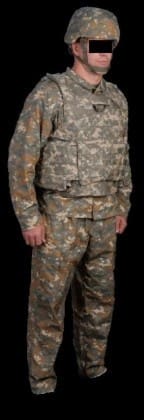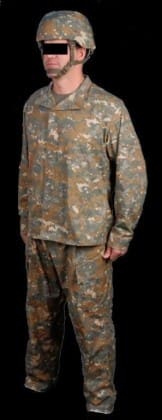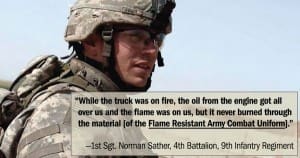While no one has fessed up to backing the proposed legislation requiring a common camo pattern and combat uniform for all US forces, some in Congress have made their displeasure with the measure known.
Rep. Mike Coffman (R-CO) initiated a letter last week that was signed by seven other members of the House Armed Services Committee (HASC). The joint letter was sent to HASC Chairman Ike Skelton (D-MO) and HASC Ranking Member Buck McKeon (R-CA) expressing strong opposition to a provision in H.R. 2647, the National Defense Authorization Act (NDAA) for Fiscal Year 2010. The provision, Section 352, mandates that all future military ground combat uniforms be a single, standardized design.
Rep Coffman estimates this measure could cost in excess of $5 Billion if enacted. He brings a unique perspective on the issue to a Congress that only boasts just over 100 members who are Veterans. Rep Coffman has served in both the US Army and Marine Corps including service as enlisted as well as officer and in the first Gulf war and current operations.
Please see the contents of the letter below.
# # #
July 16, 2009
The Honorable Ike Skelton The Honorable Buck McKeon
Chairman Ranking Member
House Armed Services Committee House Armed Services Committee
2120 Rayburn House Office Building 2120 Rayburn House Office Building
Washington, D.C. 20515 Washington, D.C. 20515
Dear Chairman Skelton and Ranking Member McKeon:
As Members of the House Armed Services Committee, we are proud that the National Defense Authorization Act for Fiscal Year 2010, passed by the House of Representatives this June, provides for our nation’s warfighters in many ways. However, we respectfully write to express our strong concerns about a troubling provision for a common combat uniform that was included in the bill absent widespread notice and without any debate. This language, Section 352, calls for the Secretary of Defense to ensure that future ground combat uniforms be a single, standardized type.
Section 352, titled “Requirements for Standard Ground Combat Uniformâ€, lists several flawed rationales for mandating our military Services into a policy that all of the uniformed Service chiefs oppose. This is an expensive initiative that, while well-intentioned, neglects key tactical, cultural, economic, and practical considerations.
Although this provision is intended to increase interoperability of ground combat forces, thus far we have yet to hear of any mission, operation, or campaign’s failure due to uniforms that prevented interoperability. We are certain you will agree that training, leadership, doctrine, and trust cultivate interoperability – not clothing.
The proposed common battle uniform is also intended to eliminate any alleged “uniqueness†that could pose a tactical risk in a theater of operations. They know that all our servicemembers are well trained, well led, and well equipped. The enemy is not taking special care to target one Service over another.
A common battle uniform would also allegedly minimize production costs and the costs for issuing the uniforms. Current law (Title 10 U.S.C. § 5063, USC Section 771) provides for the existing policy of the Services’ uniqueness in their combat uniforms. As such, since 2001 each Service has created, tested, and distributed its own combat uniforms based on their unique mission sets, physical environments, and servicemember surveys. They have each invested the time and the money to outfit their respective Services.
Preliminary analysis by the Department of Defense estimates $4.85 billion to retrofit approximately 2.2 million DoD personnel to a single combat uniform. This initial cost analysis does not include development and sustainment costs. To force such a change after the Services have just completed fielding of their distinctive uniforms is an unconscionable waste of nearly five billion taxpayer dollars, in addition to wasting the funds that have already been spent on the fielding the individual Service combat uniforms.
Each Service has a proud tradition and reputation around the world and taking away their distinctive combat uniforms removes their connection with our friends and foes alike. The villagers in a suburb outside of Baghdad see ACUs and know that those were the Americans that pushed out the insurgents and restored their electrical power. The insurgents in Fallujah see the Marine Corps Combat Utility Uniform (MCCUU) and will tell you that there is “no better friend, and no worse enemy.†This connection is key to our nation’s warfighters accomplishing their missions.
At a time when our military faces so many critical missions, and our country’s defense budget is increasingly stretched thin, an unnecessary proposal such as this serves no practical purpose. It has an extensive price tag and takes away the individual military Services’ identity at home and abroad.
We look forward to working with you, and the Senate Armed Services Committee, to correct this provision in the upcoming conference for the National Defense Authorization Act for Fiscal Year 2010. Thank you for your time and consideration.
Sincerely,
Mike Coffman Duncan Hunter
Member of Congress Member of Congress
Vic Snyder Mike Conaway
Member of Congress Member of Congress
Robert J. Whittman Doug Lamborn
Member of Congress Member of Congress
Trent Franks Todd Akin
Member of Congress Member of Congress
















































































































